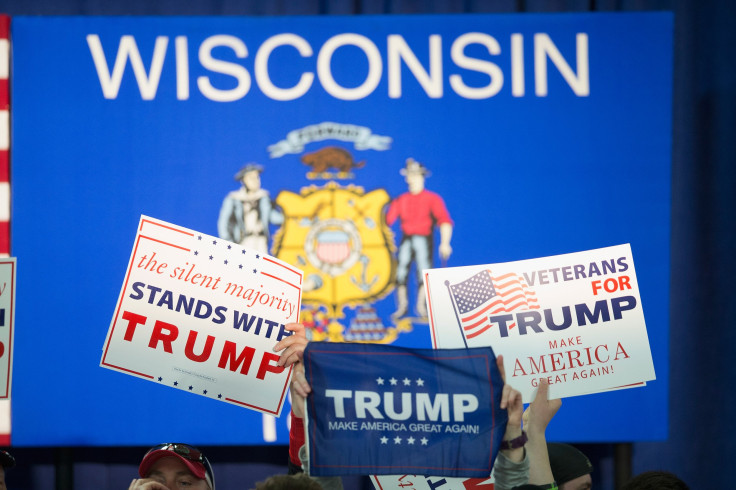Trump Trade Deals Good Or Bad For Wisconsin Farmers? Key Swing State Can Tip The Scales To Democrats In 2020

The “Phase 1” trade agreement signed between China and the U.S. this week could bolster support for President Trump after months of tense negotiations. However, there are some who believe Trump may lose a key voting block in 2020 because of the tariffs, as some Wisconsin farmers may flip their vote to the Democratic nominee after the state’s agriculture sector suffered big losses from a prolonged U.S.-China trade war.
The deal means Beijing will buy up to $200 billion of U.S. agricultural products and other exports over the next two years, while the U.S. would call off its planned tariff increases on Chinese goods.
Joel Greeno, a 52-year-old farmer in west Wisconsin, told the BBC that he was forced to sell his dairy farm amid trade tensions. “Tariffs only hurt us,” he said. "There was no thought process whatsoever."
U.S. dairy exports to China fell by 50% in 2019, with Wisconsin losing 818 dairies that same year.
"Our labor is stolen, our lives are stolen, our families are broken and it's all because we have politicians who are absolutely clueless to the reality of farming," Greeno added.
In response, the Trump administration has spent billions to aid farmers across the country but some milk producers believe it was not enough.
"I think most agriculture producers feel that the payments have not come close to making up for the damage for the tariffs,” Jim Malhern, the president of the National Milk Producers Federation, told the New York Times in late 2018.
The Phase 1 deal could reverse some of the damage done by the tariffs but China may not go back to buying Wisconsin products like before.
"There have been instances where U.S. farmers have been the victim of, say, retaliatory tariffs, where then those tariffs get lifted, and the state, whether it's Mexico, Germany, whoever doesn't go back to buying Wisconsin products," University of Wisconsin - Madison political scientist Jon Pevehouse told Wisconsin Public Radio.
The Senate approved Trump's USMCA trade agreement this week, which could impact the state’s economy. Both Wisconsin senators voted for the deal, which included many changes made by Democratic lawmakers.
“Wisconsinites rely on trade agreements that will benefit businesses, ensure collaboration between our trading partners, and promote stable economic growth. The final version of the USMCA will help Wisconsin farmers and manufacturers continue to sell their goods throughout North America,” Republican Sen. Ron Johnson said.
Democrat Sen. Tammy Baldwin also believes that the USMCA trade agreement would help the Wisconsin economy but criticized Trump’s trade wars.
“I am voting for the USMCA because it is a better deal for farmers, manufacturers, businesses and workers. Going forward, President Trump needs to understand Wisconsin needs better trade deals, not trade wars and that in order to stop the outsourcing of manufacturing jobs we not only need fair trade deals, our workers need tax reform that rewards their hard work and doesn’t encourage corporations to send their jobs to other countries,” Baldwin said in a statement.
Both the “Phase 1” and USCMA trade deals could affect how Wisconsin, a crucial swing state with 11 electoral votes, enters the 2020 general election in November. Trump won the state by just 0.8% in 2016 after seven consecutive victories by Democrats and there are GOP fears that he could lose the state with or without the support of farmers.
“For the president to win Wisconsin again, he’s not going to have the free ride he had last time. He’s not going to have Hillary Clinton sitting on her hands,” Brandon Scholz, former executive director of the Wisconsin Republican Party, told Politico in September. “He’s going to have a completely engaged opposition party on the ground.”
© Copyright IBTimes 2024. All rights reserved.





















